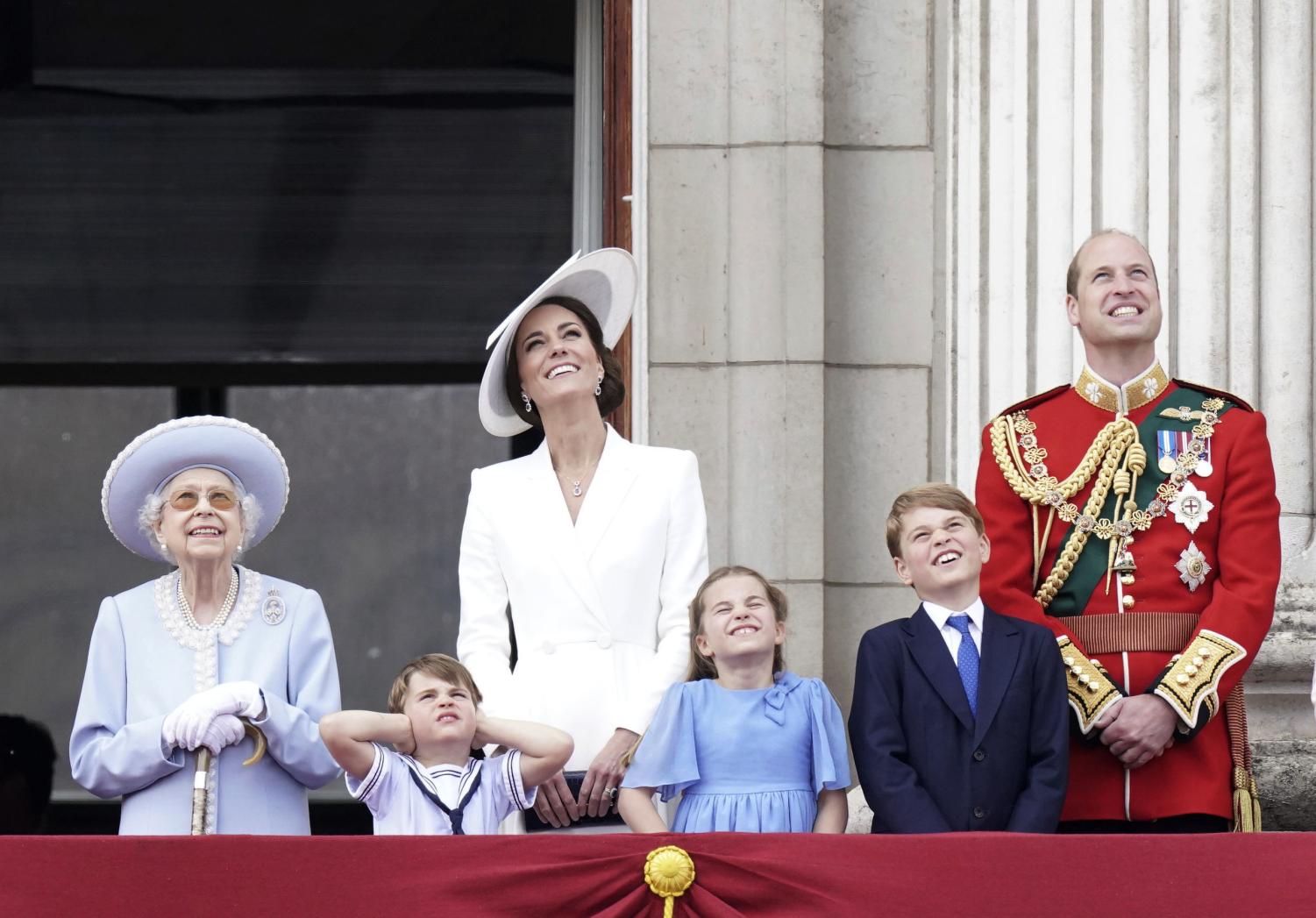LONDON — Queen Elizabeth II stepped gingerly onto the Buckingham Palace balcony Thursday, drawing cheers from the tens of thousands who came to join her at the start of a four-day celebration honoring her 70 years on the throne.
Fans sported Union Jack flags, party hats or plastic tiaras. Some had camped overnight in hopes of glimpsing the 96-year-old queen and a chance to watch the Trooping the Color — a military parade marking each sovereign’s official birthday since 1760.
It was one of the first big gatherings in the U.K. since the COVID-19 pandemic began.
“Everybody has got the same mission,” said Hillary Mathews, 70, from Hertfordshire. “All the horrors that’s been going on in the world and in England at the moment are put behind us for a day, and we can just enjoy really celebrating the queen.”
Elizabeth, who became queen at 25, is Britain’s longest-reigning monarch and the first to reach seven decades on the throne.
Yet age has begun to catch up with her. Buckingham Palace announced the queen would not attend a thanksgiving church service today after experiencing “some discomfort” at Thursday’s events.
“The queen greatly enjoyed” Thursday’s events, according to the palace.
She basked in her moment, chatting with her great-grandson Prince Louis, 4, who occasionally covered his ears as 70 military aircraft swooped over the palace in salute. The display included a formation of fighter jets flying in the shape of the number 70.
The queen was joined on the balcony by more than a dozen royals — though not Prince Harry and his wife, Meghan, who gave up front-line royal duties two years ago. The couple traveled to London from California with their two young children to take a low-key part in the celebrations.The monarch had decided only working members of the royal family should appear on the balcony. The decision also excluded Prince Andrew, who stepped away from public duties amid controversy over his links with convicted sex offender Jeffrey Epstein.
Andrew will also miss Friday’s church service after testing positive for COVID-19.
The Jubilee is being commemorated with a four-day holiday and events, including a concert at Buckingham Palace on Saturday. Thousands of street parties are planned nationwide, repeating a tradition that began with the queen’s coronation in 1953.
Not everyone in the U.K. is celebrating. Many took advantage of the long weekend to go on vacation. Twelve protesters were arrested Thursday after getting past barriers and onto the parade route. The group Animal Rebellion claimed responsibility, saying the protesters were “demanding that royal land is reclaimed.”
Yet the Jubilee is giving many a chance to reflect on the state of the nation and the huge changes that have taken place during Elizabeth’s reign.
John Major, one of the 14 prime ministers during the queen’s reign, said the monarch’s stoic presence has helped steer the country over the decades.
“The queen has represented our better selves for over 70 years,” he told the BBC.
Congratulations arrived from world leaders, including U.S. President Joe Biden and Pope Francis. French President Emmanuel Macron called Elizabeth “the golden thread that binds our two countries” and former President Barack Obama recalled the queen’s “grace and generosity” during his first visit to the palace.
Cheers and the clop of hooves rang out Thursday as horse-drawn carriages carried members of the royal family from Buckingham Palace to a ceremonial parade ground about half a mile away for the Trooping the Color ceremony.
The annual tradition is a ceremonial reenactment of the way battle flags were once displayed for soldiers.
Prince Charles, the 73-year-old heir to the throne, stood in for his mother during the event Thursday.
He rode onto the parade ground on horseback and took the salute of troops in their scarlet tunics and bearskin hats, flanked by his sister, Princess Anne, and oldest son, Prince William.
“I’m very proud of the queen,” said Celia Lourd, 60, one of the spectators. “She’s been my queen all my life, and I think we owe her an awful lot for the service she’s given to the country. So I wanted to come to show my support today and say thank you.”











